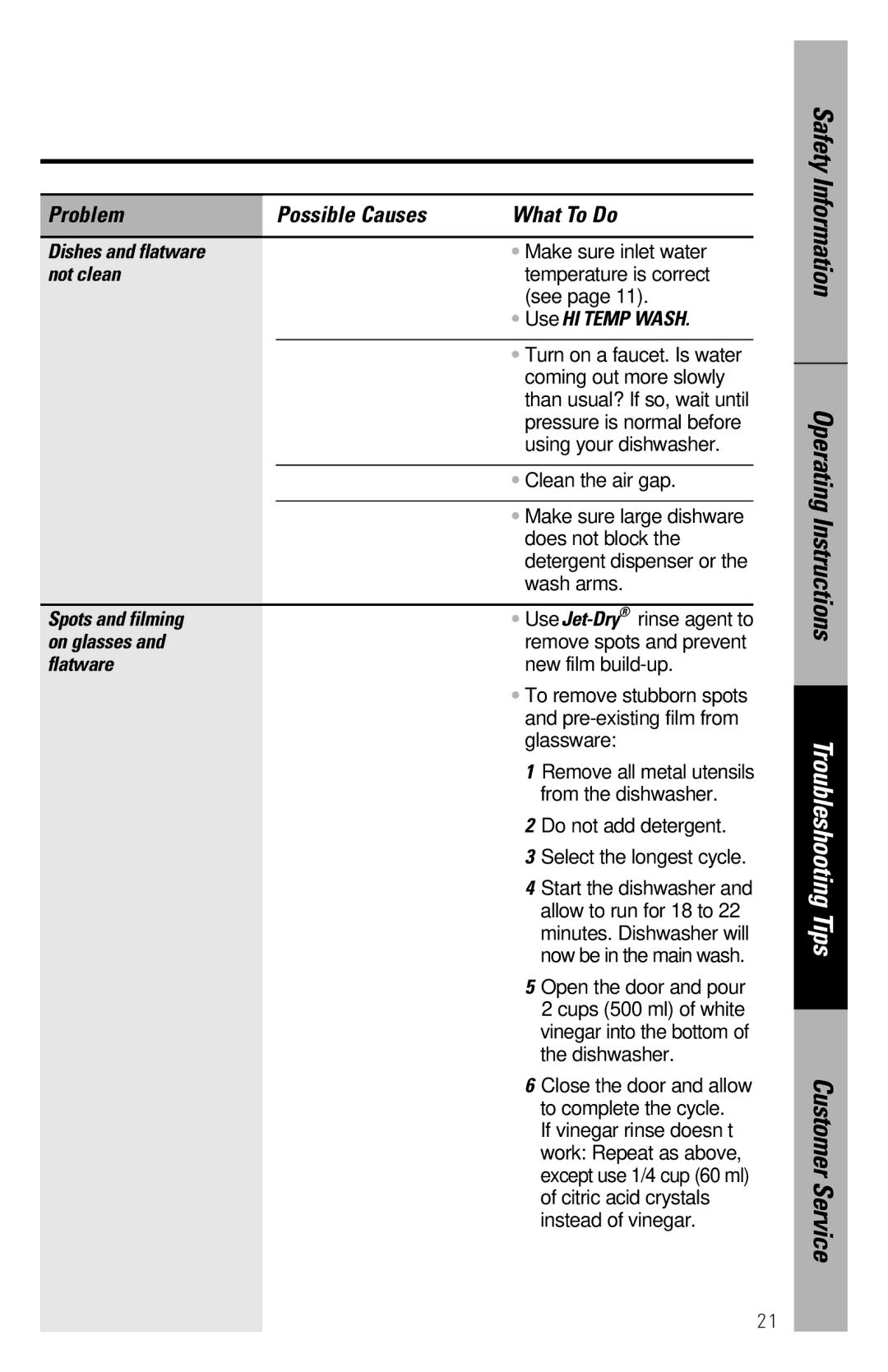
Problem |
| Possible Causes | What To Do |
|
|
|
|
Dishes and flatware |
| Low inlet water | • Make sure inlet water |
not clean |
| temperature | temperature is correct |
|
|
| (see page 11). |
|
|
| • Use HI TEMP WASH. |
|
|
|
|
|
| Water pressure is | • Turn on a faucet. Is water |
|
| temporarily low | coming out more slowly |
|
|
| than usual? If so, wait until |
|
|
| pressure is normal before |
|
|
| using your dishwasher. |
|
|
|
|
|
| Air gap is clogged | • Clean the air gap. |
|
|
|
|
|
| Improper rack loading | • Make sure large dishware |
|
|
| does not block the |
|
|
| detergent dispenser or the |
|
|
| wash arms. |
Safety Information
Operating Instructions
Spots and filming on glasses and flatware
Extremely hard water
Low inlet water temperature
Overloading the dishwasher
Improper loading
Old or damp powder detergent
Rinse agent dispenser empty
Too little detergent
•Use
•To remove stubborn spots and
1Remove all metal utensils from the dishwasher.
2Do not add detergent.
3Select the longest cycle.
4Start the dishwasher and allow to run for 18 to 22 minutes. Dishwasher will nowbeinthemainwash.
5Open the door and pour 2 cups (500 ml) of white vinegar into the bottom of the dishwasher.
6Close the door and allow to complete the cycle.
If vinegar rinse doesn’t work: Repeat as above, except use 1/4 cup (60 ml) of citric acid crystals instead of vinegar.
Troubleshooting Tips
Customer Service
21
